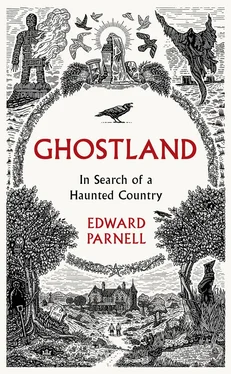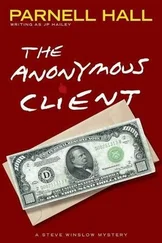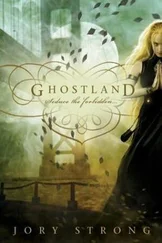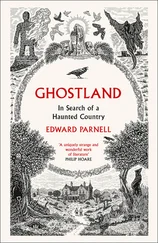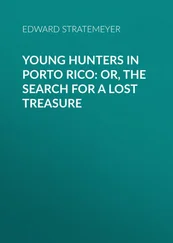Waterland was published in 1983 and was shortlisted for the Booker Prize in the same year. It is a novel about the forces inherent in human nature that tear people and families apart, how past events haunt the present. But, above all, for me it’s a book about the unnerving flat landscape of my youth. Though I must qualify this, because it would be wrong to regard the Fens as forming a solid, distinctive whole; the country of my childhood had its own boundaries based upon the places we’d visit regularly as a family, stretching a varying number of miles in each direction from our house, but outside of which the more removed outposts of flatness seemed alien and otherworldly. One such locality that we occasionally passed through was the tiny cluster of residences that formed the village of Twenty. In 1982 it acquired a new black-lettered sign that sat below its official name – ‘Twinned with the Moon’ it read; soon afterwards some local joker spray-painted the retort ‘No Atmosphere’ beneath.
In my reading of the novel, Waterland has its setting among the ‘Black Fens’ beyond Wisbech, a town which is itself reworked by Swift into Gildsey, with the real Elgood’s brewery standing in for the book’s fictional Atkinson’s. Despite being only a forty-minute drive from my home, Wisbech was an unacquainted place, less familiar to me than the geographically more distant London, which most years we would make a pilgrimage to on the train. Wisbech was merely somewhere we skirted on visits to Welney, where my mother took us to watch the winter gatherings of wild swans that sought refuge on the dark fields – terrain only slightly more hospitable than their native Iceland and Siberia.
Thomas Bewick, the eighteenth-century illustrator and author of the landmark History of British Birds , whose surname is commemorated by those squat-necked Arctic swans we would watch feeding on potatoes on the floodlit washes, also features tangentially in M. R. James’s story ‘Casting the Runes’. A victim of the story’s black-magic curse is sent in the post one of Bewick’s woodcuts that ‘shows a moonlit road and a man walking along it, followed by an awful demon creature’. If he has not concocted his own work by Bewick, James is most likely referring to the same tailpiece vignette that so disturbs the young Jane Eyre in Charlotte Brontë’s novel – a tiny extraneous illustration tucked into the blank space at the end of the 1804 ornithological tome’s chapter on the black-throated diver.* According to Brontë’s heroine, Bewick’s terrifying etching depicts a ‘fiend pinning down the thief’s pack’. And though there’s nothing that necessarily identifies the man as a law-breaker, the act of carting a heavy bag down a dark country lane does seem suspicious; the attached medieval-looking winged devil that’s doing its best to pry open the contents of the sack does little to assuage our suspicions that the bearer has been up to no good and is getting his hellish comeuppance.
The narrator of Waterland , Tom Crick, is a history teacher who is being encouraged to take early retirement due to budgetary restraints at his school. ‘We’re cutting back on history,’ his headmaster drily informs him, though ultimately it’s the mental breakdown of his wife that speeds the process along. A precocious boy in his class questions the point of learning about what has gone before: ‘What matters,’ Price declares, ‘is the here and now. Not the past.’ So, in order to demonstrate how history does still result in consequences for the here and now, Tom Crick begins to tell them of his own eddying past, the history of the watery landscape of the ‘fairy-tale place’ of his youth.
Waterland swirls between earlier days and the present, between the personal family dramas of the Crick and Atkinson families, and of the shifting silts of greater events such as the Napoleonic or First World Wars, whose eventual settling has a future effect on the imprecise borderlands of the far-off Fens. And, in a nod to Melville’s Moby-Dick , there is even an eight-page digression into the slippery natural history of the European eel, a species my grandfather, a keen angler, was well acquainted with.
I read the novel aged sixteen, a year or two after my brother had first turned its pages. It’s testament to the book’s power that my father, who usually distracted himself with the crime novels of Ed McBain or the thrillers of Frederick Forsyth (who he recalled meeting when they both worked in King’s Lynn at the end of the 1950s), and my grandfather – more comfortable with the westerns of Louis L’Amour – both seemed to take to it. For me, I think (and probably for them too), Waterland ’s initial magic came from its setting; although its events largely occurred in a time well before I was born and in a skewed version of a place some twenty miles distant, it was still a landscape I felt I knew – and a landscape I’d never seen depicted in fiction before.
The key attraction, however, was that the Cricks were lock-keepers. Because Grandad had been one too, looking after the antiquated sluices at the confluence of the Welland and the Glen, and at the terminus of the Vernatt’s Drain. In common with the Cricks of the novel, Nan and Grandad lived in a riverside cottage that came with the job. It too was a fairy-tale dwelling of sorts, located in a place whose own name was something of a misnomer: Surfleet Reservoir (though Seas End on maps), the latter word referring to the ultimately failed eighteenth-century plan to divert river water into an artificial lake to aid the drainage of local farmland. My grandparents’ post-war brick bungalow, a veritable palace among the nearby wooden holiday chalets and ramshackle fishermen’s huts that lined the Glen, was where my mother spent her teenage years before she left to marry my father beneath the leaning steeple of the main village’s church, moving six miles upriver to the house where I grew up. ‘The Res’ (as locals still refer to it) was an odd enclave populated by weekenders who moored their boats on the seaward side of the sluice – a deep tidal channel fringed by tall reeds – from where they would head out for a spot of sea fishing, or others who preferred to spend the summer sitting outside their chalets chatting to their neighbours while their children played in the river. By all accounts the place had a distinct sense of community back then, and even today has a different feel to the rest of the uniform, arable-dominated area – bringing to mind some timeless Dutch canal-side idyll.
My grandparents departed this watery haven on Grandad’s retirement, moving to a ground-floor 1970s council flat in nearby Spalding fitted with wide doorways, a high-seated toilet, and red pull-cords that would summon the local old people’s warden in an emergency. The freedom of the lock-side home I cannot remember the inside of (I would have been two when they left it) was exchanged for more practical – but more humdrum – disabled-friendly accommodation that could better cope with Nan’s ongoing, crippling physical deterioration from rheumatoid arthritis.† As her condition worsened she developed a complete reliance on my grandfather who, in a strange role reversal for a man born in 1909, became her chief carer and cook, lugging her into her wheelchair to transport her to the bathroom and bedroom. Occasionally, the pair of them would argue with a causticity that now, I think, was borne out of Grandad’s frustrated inability to improve the situation. But, at other times, there was a tenderness in the way he gently pipetted artificial tears into her desert-dry eyes.

I follow the familiar route that hugs the river and leads away from my home town – I can still recall every curve even after all this time. This was the way I would ask my parents to come if we were returning from Peterborough of an evening, in the hope I’d spot an owl sitting on one of the fence posts strung along the bottom of Deeping High Bank. Sometimes Mum would pick me up from school and drive Grandad and me at dusk over the undulating road, while we watched through the windows for the silent-winged birds. In my formative years I claimed a kind of ownership of the place, mistakenly believing it was named ‘Deeping Our Bank’ – for the hours we spent here, it might as well have been.
Читать дальше
